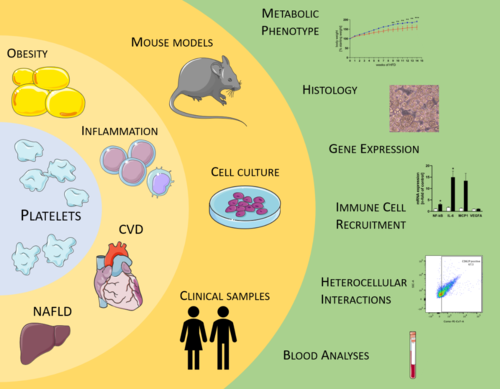Arbeitsgruppe Platelets in Cardiometabolic Disease
Leitung: Dr. rer. nat. Nancy Schanze
Research focus
My research group is interested in the role of platelets in the development and progression of cardiometabolic disease. We look at the platelet in its role as a multifaceted modulator of inflammation and angiogenesis apart from its classical role in hemostasis. Our aim is to elucidate how platelets influence different cell types, such as endothelial cells, leukocytes, cardiomyocytes or adipocytes, thereby modulating the course of disease. With the help of mouse models, cell culture techniques and clinical samples we want to unravel fundamental mechanisms that lead to the discovery of therapeutic targets and biomarkers.


